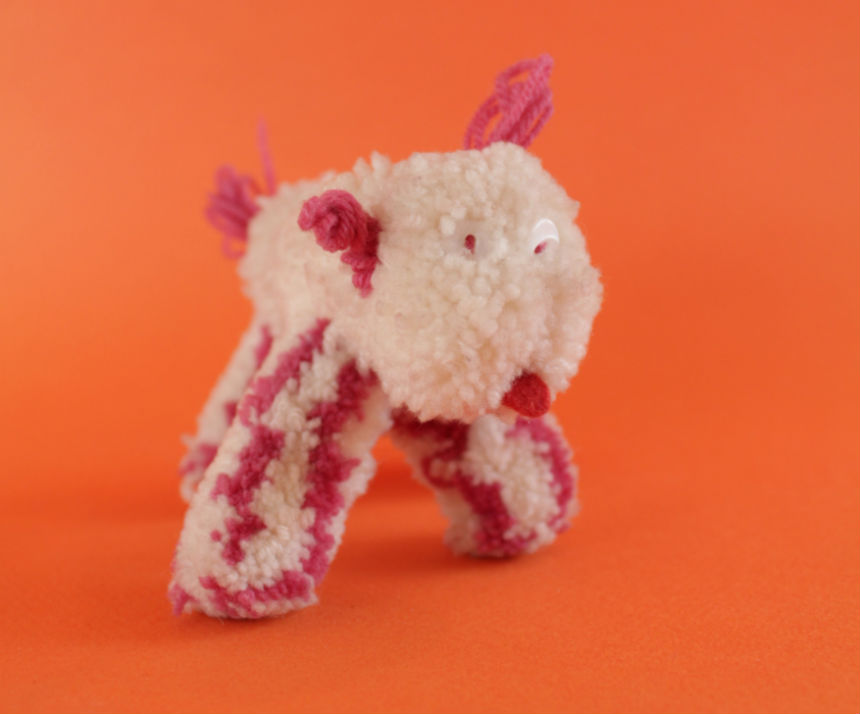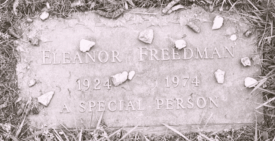What do we do when the drain of grief and the ache of loss are the only memory left of someone?
A federal marshal whisked me away in the middle of the night from the West Virginia prison cell I shared with my birth mother. She was a heroin addict sentenced for drug related crimes, in her first year of serving a ten-year sentence, and I was in my first year of life. This was my entry into the world. Yet within this uncertain landscape, I knew security.
The marshal transported me to a foster family in Seattle. A few years later I was adopted by progressive, academic Jewish parents. My first home was left behind, the federal prison where I was born and lived for twelve months in a community of inmates, women mourning their defeats and sorrows. Prison is a vast neighborhood of sweeping loss.
An inmate newsletter announced my birth: “Down the hall we’re met with gales of laughter and we fought our way in to greet the bubbling, bounding debutante of the compound.” But after my adoption, the displacement shrouded my childhood with a paralyzing sorrow. In turn, that transformed into rage, periodic muteness, death-defying use of drugs and alcohol, violence against others, against myself. I was a smoldering bonfire, suffocating in my own smoke.
I never met my mother again. She died before I could ever find her but after finishing her sentence, and, I hear, eventually cleaning up. But I lost more than just her; I lost my soul in spiritual pain, which bled into loss of meaning and emotional lockdown. Emotional survival became my only purpose during the years when my peers packed their sleeping bags for slumber parties and worried about prom dates and standardized tests.
I thought I was crazy: I was stuck with those living beyond bars and yearning for “back home,” the prison where I first knew love. Grief was all I had left to sustain her love. Only I wish I didn’t understand that as a child. All I knew was to practice what would become my mantra for years: don’t attach don’t let them love you. And…don’t love them.
Once I grew to understand the skin crawling sadness of grieving the separation from my birth mother, I was left with a lifetime of what if’s. My adult brain now practices its new mantra – it is what it is – but the what if part of me is full of imagination, even though it’s empty speculation.
I wonder: Why didn’t she quit drugs the way I had? What was our prison life like together? Why didn’t she stay out of prison? Because then she wouldn’t have missed my life.
Hard work, support, and more grieving finally helped this mother-loss wound to heal. Still, once in a rare while, sorrow about my birth mother swells from within, as does our blurry bond of security and prison. None of which I remember, not even her. The first images I have of my birth mother were in the records I obtained from the Bureau of Prisons, mug shots posed with swag and street savvy. I recently received an album from my birth family with a few photos of her. I know this woman, I thought, when I saw her image. I yearn to remember who I thought I was missing all those years. This is common with many adoptees, the separation we’ve endured sitting buried in a non-memory.
When we lose something, we tend to magnify its memory. I transformed my elusive bond with my birth mother into a bright light of glamour, as if the two of us paraded on a float around a palace, not a prison. Together, the queen and her princess. This is the process of grief, to conceive new memories so that we can go on living.
My DNA is carved with all things prison. Today, when I enter prisons across the country to use storytelling for social change and offer life skills seminars to incarcerated women and girls, nothing triggers bad memories or reactions.
Some people ask me if I’m scared. Prison was my first neighborhood, albeit one without a swing, slide, or playpen. So what should scare me in the presence of hundreds, or even thousands, of inmates in the prison gyms where I speak? The larger the prison, the more grounded I feel.
The mother-loss faded over time, but on rare occasion I feel sorrow about our separation. So I turn to what’s worked for me: taking the time to grieve, however long I need. No action removes pain when it lands on our front porch. Not drugs, not alcohol, not sex, not the escape to sun and beaches or overwork. Nothing works but to mourn, cry, ache. And asking for help in finding joy and laughter.
Sometimes grief leads us to a void. But it can ultimately lead to deeper meaning and greater appreciation for life, as happened with me, despite tough odds. Inexplicably, buried deep within the agony of my loss and mourning, waited beauty and wonder.
Deborah Jiang-Stein is a national speaker and founder of The unPrison Project, a 501(c)3 nonprofit working to empower and inspire incarcerated women and girls with life skills and mentoring to plan and prepare for a successful life after prison. She is the author of the memoir, PRISON BABY (Beacon Press).









